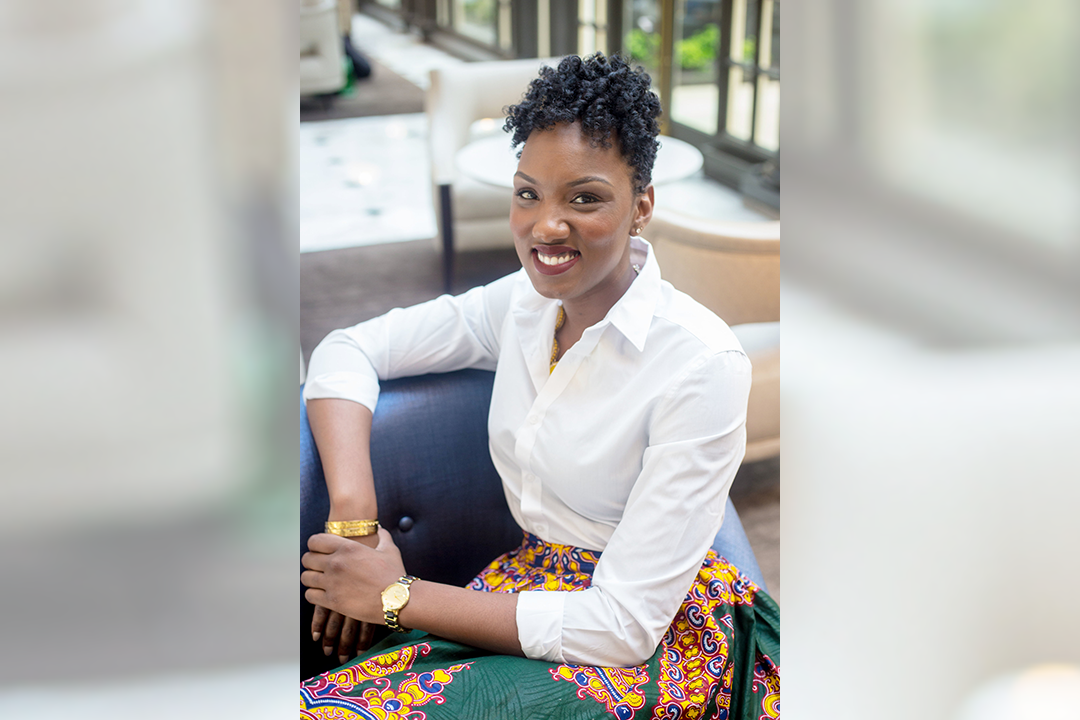Cramming for exams and managing tricky conversations with relatives are annual hazards around late November and early December. But in 2020, approaching an exam period and winter holiday unlike any other, students may find themselves up against an ongoing cascade of academic, personal and even global stressors. GW Today spoke with Jessica Parrillo, director of Counseling and Psychological Services (CAPS) at the George Washington University’s Colonial Health Center, about the best ways to handle a difficult period in a difficult year. (And remember, CAPS has resources to help.)
- Acknowledge your feelings and cut yourself some slack. Give yourself permission to feel bad, when necessary, about all the things that don’t feel normal, clear or certain this year. Taking inventory of how you’re feeling and why may seem overwhelming, but taking a few minutes to express or write down those stressors can clear mental space for meaningful acts of self-care.
“We can’t think clearly about what we need if we’re busy telling ourselves that we’re supposed to feel differently or putting pressure on ourselves to plow through while ignoring that we’re suffering,” Dr. Parrillo said. “Before we can identify ways to cope, we must first give ourselves permission to access, acknowledge, normalize and empathize with our experiences, thoughts and feelings.”
- Note what is and is not within your control. When writing down your stressors, note the things that are in your control (mapping out a study plan, for instance, or setting your own boundaries around social distancing) as opposed to things that aren’t (a professor’s choice of exam questions or a relative’s approach to the COVID-19 pandemic). “This exercise is invaluable because it truncates the list of things that require energy,” Dr. Parrillo said. “It allows you to use your resources to focus on things you can do.”
- Focus on the present. Simple breathing exercises can be helpful in redirecting attention to the here and now, as can meditation apps, yoga and other forms of physical exercise. “Any time we get too far ahead of ourselves—‘How long are we going to be in this? What’s going to happen next?’—we’re in the ‘can’t control’ column,” Dr. Parrillo said.
- Make sure you’re meeting your physical needs. That means nourishing food, sufficient sleep and some form of physical exercise that takes your body’s needs and limitations into account. If falling or staying asleep is difficult, tried-and-true tips like a set bedtime, limiting screen time at night and making sure to separate work space from sleeping space can help.
- Establish structure that includes making time for what you prioritize. Days can seem indistinguishable when we’re in our homes during the social distancing period, blurring in a way that can weigh on the psyche. For Dr. Parrillo, the key is imposing structure and connecting to your individual value system. Ask what brings your days a sense of meaning, value and purpose, whether it’s going outside, connecting with friends and loved ones, spiritual practice, community service, creative exercise or something else. Then make a personal schedule and be sure there's space within it, daily or weekly, to do the activity you've identified.
“There’s a myth around what self-care looks like—that it’s always a day at the spa, or eight hours of Netflix—and it can look that way sometimes,” Dr. Parrillo said. “But when I talk about self-care, I mean anything that helps restore you and create a sense of balance in your life. These are things that should not be considered luxuries but needs.” Make sure you’re intentionally building your days and weeks to address those needs as much as possible.
- Set healthy limits and boundaries. The holidays are always a time ripe for conflict and difficult conversations. This year, those conflicts may be exacerbated by very real threats—especially if your loved ones have taken an approach to the pandemic that differs from yours. Establish your boundaries through clear communication, whether about your expectations for distancing, mask wearing and other COVID-related rules or about your needs and limits in discussing politics. Enter into these conversations firm and polite, having already clarified for yourself what is most important, and stick to your convictions. It’s most important that your needs for physical and emotional safety are met, Dr. Parillo said.
“If you are met with some disappointment from others in the conversation, or if you experience a sense of guilt, that’s OK,” she said. “Try not to take too much ownership of other people’s feelings in reaction to those values and boundaries.”
- Notice when things feel unmanageable. If your stress or depression is interfering with academic, professional or personal responsibilities, it may be time to seek further help. Not everyone finds talk therapy to be the most helpful tool, Dr. Parrillo said, but CAPS has resources available to assess your mental health and support you in whatever way is most helpful.
“I feel comfortable making the blanket statement that no one’s mental health is at 100 percent right now,” Dr. Parrillo said. “That’s one reason it’s important to check in with yourself and take your emotional temperature. If we don’t feel like ourselves, if we’re not experiencing the levels of pleasure and motivation we’re used to, that’s important information.”



